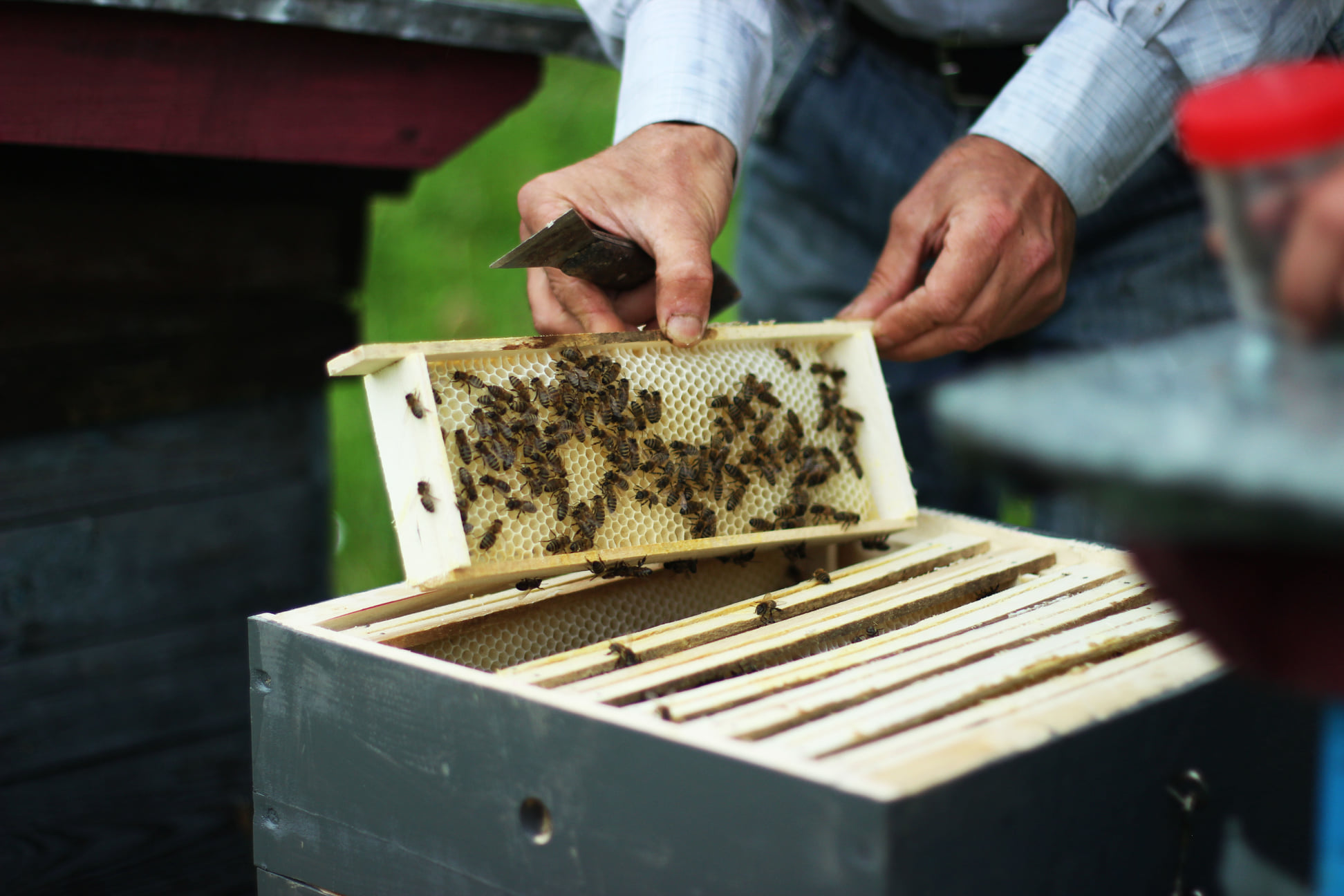
A small greyish bee, which can often be seen flying above the Carpathian flowers in summer, is a real explorer. Originally coming from this area, Carpathian bee or Karpatka is currently bred as far as the Caucasian. This little hero is hard-working, peaceful and resilient to weather adversities. Its honey is one of the typical local products of this area. Unfortunately, climate change, the use of pesticides and cross-breeding have significantly reduced the number of purebred Carpathian bees.
The CarpathianBee project team: Non-government organization Association of Beekeeper "Carpathian eco-apiary" (UA), Kolochava Village Council (UA), Association of self-governments "Euroregion Carpathians - Ukraine" (UA) and finally Association for Development and Promotion of Podkarpacie "Pro Carpathia" (PL) believes that this amazing creature is a part of the local natural heritage and must be protected along with beekeeping traditions.
The overall description of the Carpathianbee project you can find in the Projects tab on our webpage.
The project implementation started on 5th September 2019. At first, the project was presented to the residents of the Kosiv raion (UA), particularly in Velykyi Rozhyn village, where there are more than 10 Karpatka apiaries. Similar meetings took place on the territory of Verkhovyna raion. Additionally, to reach a wider audience, a video and articles about the project were published in local media of the Ivano-Frankivsk and Zakarpattya Oblast and on social media.
To watch the video about the project see the link
In December 2019, the lead beneficiary and Kolochava Village Council organized two research and monitoring expeditions to high-altitude apiaries of the Carpathian region. The expeditions were organized in the area of Kosiv, Verkhovyna and Mizhhirya raions, including the areas from which the formation of the Carpathian breed originates in order to study the breed composition of apiaries and determine the level of breed variability in the context of several seasons.
Within the project two open area exhibitions "Carpathian apiary in the historical review – from the hollow to the smart hive" were established, one in Smodna (Kosiv raion) and the other in Kolochava. These are unusual settlement made of wooden houses: with a mill, a school, a church and the only inhabitants are bee families. The activity included transportation of beehives from the most remote mountainous areas, restoration of authentic hives (purchase of materials: roofing, paints/varnishes, frames, other components), purchase and installation of the "Smart Hive" which allows receiving honey directly from the hive without external interference in the livelihoods of the bee family. 4 different types of beehives were purchased to demonstrate the traditions of beekeeping in different regions of the Carpathians along with protective costumes for adults and children. After the project implementation, the educational lessons for children about the history and maintenance of beekeeping will be conducted in two Carpathian Authentic Bee cultural centres.
On the same territory, in Kosiv raion and Kolochava, the Association of self-governments "Euroregion Carpathians – Ukraine" (partner in the project) set up the three tourist routes "Carpathian Honey Trails", which total length is 72 km! They include the main tourist locations related to the history and presence of beekeeping. There are apiaries, decorative beehives, places of interest of beekeeping history, nature sights to be seen.
On the Polish side of the border, activities were focused on developing the concept of a tourist route "Carpathian Honey Trail" in the Bieszczadzki National Park: a bicycle route (approx. 50 km) and a walking route (approx. 12 km) in Lutowiska. Moreover, a 2-minute promotional film was made with the participation of a social influencer, concerning beekeeping in the Podkarpackie voivodeship, Zakarpattya and Ivano-Frankivsk oblasts
To see a promotional film follow the link
Finally, on 4th May 2021, the Carpathian Honey Festival took place in Kolochava village and began with a visit to the local apiary - "From hollow to smart hive". The guests had the opportunity to observe the transition from a beehive to a "smart" beehive equipped with various sensors. During the Festival, beekeepers introduced the intricacies of beekeeping, held master classes on making candles or soap, pumping honey, showed the work of the Carpathian bee nursery and more. Later on, the local folk musicians, artists and students took the stage. Except for the inhabitants and project partners, beekeepers, representatives of local authorities, NGOs, journalists and many other guests took part in the event.
According to the grant contract, the project should be completed by 4th July 2021.
Was this page useful?


